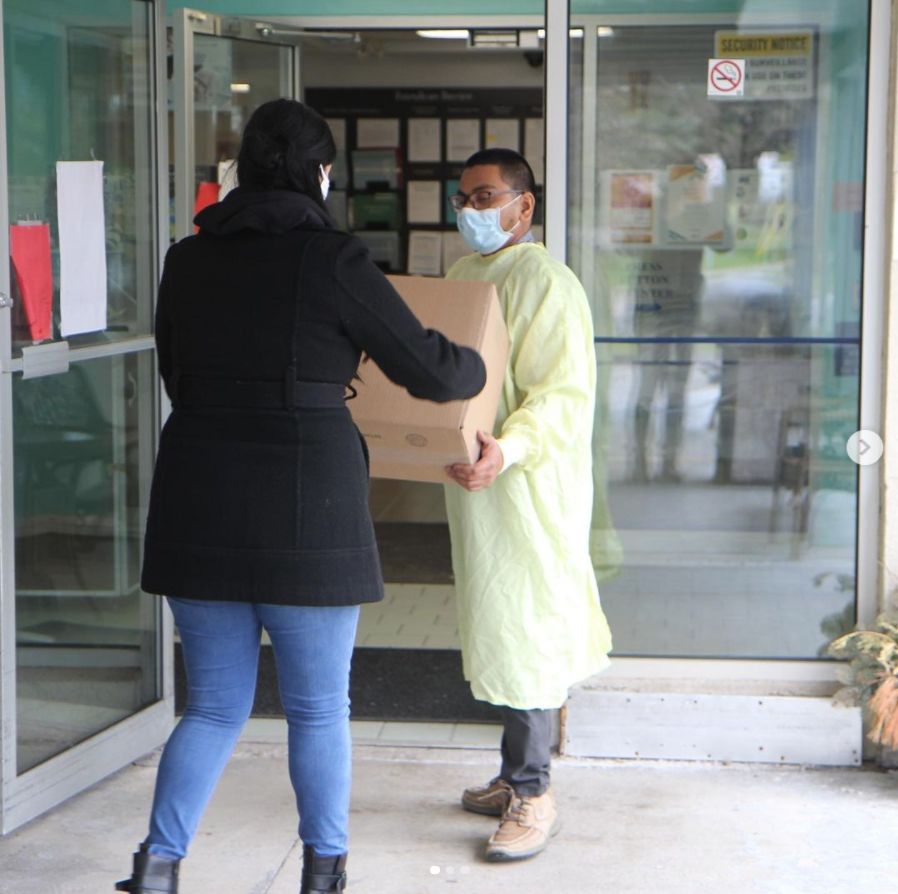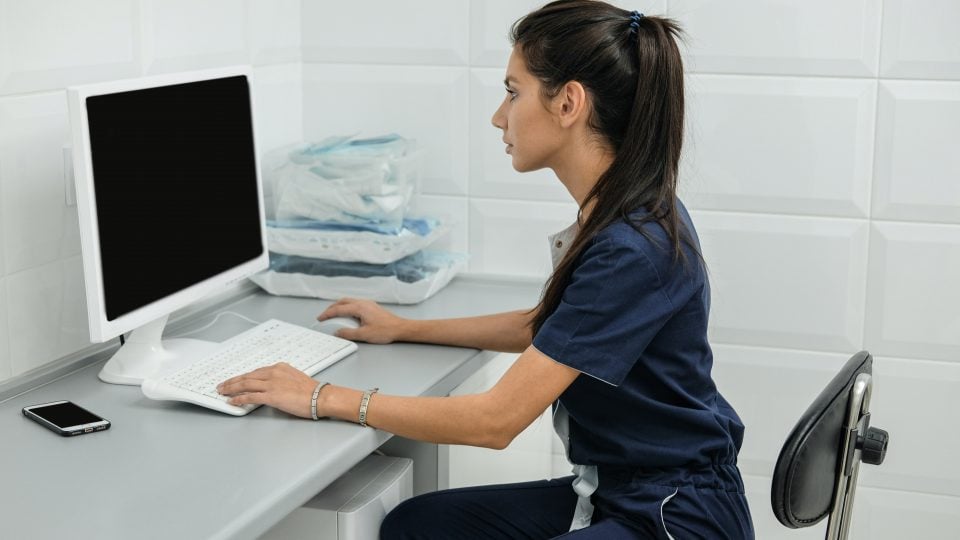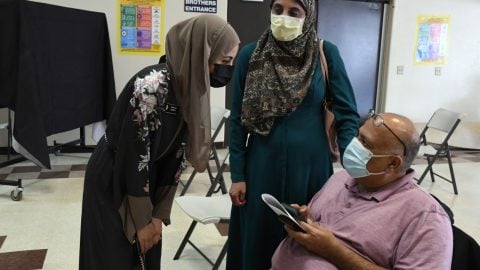In August, my friend and I sat down over dinner to watch the opening ceremonies of our virtual medical school orientation for the University of Toronto, Class of 2024. Although we were told to expect a surprise guest, I never would have anticipated seeing Dr. Anthony Fauci, leading member of the White House COVID-19 taskforce, smiling at us from my friend’s tiny iPad screen. Dr. Fauci has become something of a celebrity in the medical community, so my friend and I were undoubtedly starstruck. He congratulated us on our acceptance into medical school, told us to brace ourselves for the challenges ahead, but also encouraged us to use the experience of starting medical school in COVID-19 pandemic as a learning opportunity. While I didn’t fully process his message at the time, I now have a better appreciation for his words ten weeks into my medical education.
A Changing Profession
It’s no secret that COVID-19 has changed our world forever. It is certainly an interesting time to be entering the medical field and I can say that it is not without its challenges. While there has been a renewed sense of respect for the profession, medicine itself is facing a new level of scrutiny. Mistrust and misinformation are rampant, with basic scientific fact being disputed by outrageous conspiracy theories. Even within my own social networks, I have repeatedly found myself debunking questionable internet articles and claims that the pandemic is being blown out of proportion.
As a medical student, the uncertainties in our education have also kept many of us on edge. My entire medical education, from my interview to my first day of classes, has been online. For a profession that has previously relied on in-person training, this is something that would have been unheard of just a year before. With the number of COVID-19 cases rising each day, it is hard to predict just when we might be able to physically return to class.

And yet despite these challenges, I wouldn’t have chosen any other year to start my medical education.
A Hopeful Future
Although things may seem uncertain, I am optimistic for the future. The emergence of COVID-19 will likely change much of our healthcare system and larger society going forward, hopefully for the better. For medical students, it has reiterated the importance of our future work and the role that we may someday play in keeping our communities safe. The perseverance and courage of our healthcare workers throughout this crisis have been an inspiration to us. For myself, the pandemic has served as a daily reminder of why I felt so strongly about a career in medicine in the first place; I have the privilege of entering a profession where I will regularly bear witness to life and death and will hopefully play a meaningful role in protecting it. As a Muslim, this has important spiritual significance for me, as we believe that “whoever saves a life, it will be as if they saved all of humanity” (5:32).
“The emergence of the COVID-19 is a rare opportunity from which we are learning an extraordinary amount.”
Dr. Anthony Fauci
An Inclusive Approach
The pandemic has also revealed some gaping holes in our healthcare system. We discovered how racialized and low-income individuals throughout the GTA were disproportionately impacted by COVID-19. As a result, we are now having some long-overdue conversations about how race, poverty, housing, and employment influence the health of our communities. More commonly referred to as the social determinants of health, these factors have been shown to play a much more significant role in making Canadians sick. These discussions are increasingly integrated into our curriculum and are helping to shape a generation of physicians that will be much better equipped to advocate for the health of their patients.

I can already see how the challenges presented by COVID-19 are shaping an extraordinary generation of physicians. Those around me know that I often poke fun at the overachieving nature of medical students, but the truth is I take great pride in being able to sit alongside these exceptional individuals. They inspire me each day with their resilience, drive, and hopes to make this world a better place. Despite being in the middle of a pandemic, my classmates are still maintaining incredibly (and annoyingly) high grades and take every initiative they can to learn.
A United Cohort
For example, within minutes of our lecture on the pharmaceutical industry, my classmates suggested a reading group to discuss the opioid crisis and the role that physicians can play in protecting their patients. As someone who actively avoided courses with mandatory textbooks throughout my undergrad, I could never have imagined someone voluntarily signing up for readings, and yet my classmates did. Not because it would get them better grades or because they wanted to impress some professor, but because they thought it would make them better doctors.
Outside their education, medical students have also risen to the challenges that COVID-19 has presented. Their collective action has led to some of the most impactful initiatives that we’ve seen throughout the pandemic. One such example was Conquer COVID-19, a grassroots organization in which medical students worked alongside community members, business leaders, and physicians to secure much-needed personal protective equipment (PPE). As part of the medical advisory team, these medical students assessed the needs of medical facilities and developed a system for allocating PPE, eventually distributing more than 3 million items to our frontline healthcare workers.

Another initiative was started by our medical society president, who is truly a force to be reckoned with. She worked with 25 dedicated students to make non-medical face masks that were used for training purposes. By the end of April, they made 2,500 masks which were distributed to ten hospitals in the GTA.
“Look out for one another. We are all in this together and the only way we will end it is by ending it together.” – Dr. Anthony Fauci
Finding A Way Forward Together
The pandemic has however, unearthed and exacerbated social isolation in our communities, even within our medical class. For most physicians, medical school is a time when you meet some of your lifelong friends and future colleagues. These are the individuals who move with you throughout your medical journey; this feeling can be challenging to replicate with online school.
Recognizing the need for us to stay socially connected, my classmates have made conscious efforts to step out of their comfort zones and introduce themselves, something that can be intimidating when you’ve only ever seen Facebook pictures of each other. Yet my classmates continue to look out for one another, forming friendships that I know will last for years to come. We’ve now had more online socials and game nights than I can count, to the point where I can now recognize people based solely on their Zoom background (I still can’t figure out anyone’s height though).
Beyond all this, our class has also checked off some notable firsts this year. While I’m sure we will go down in history as the ‘Zoom doctors’, I would be remiss if I didn’t mention that our class also has the largest number of black students ever admitted into a Canadian Medical school. This incredible news came at the height of the Black Lives Matter movement over the summer, as a sign of hope that we were starting to head in the right direction. As an institution that has historically discriminated against Black communities, this was a much-needed step towards combating medical racism in Canada. I can personally say that I am sitting in one of the most diverse classes that I have ever been in and am grateful to be learning from and alongside individuals from all walks of life.

So despite the immense challenges of receiving a medical education during a pandemic, I am continuously inspired by the determination and resilience of medical students. COVID-19 may very well be our chance to change society for the better, and I suspect that these bright minds will play some role in that.
“Now more than ever, we need your energy, your talent, your character, and your resolve; qualities I am confident you have in your abundance.”
Dr. Anthony Fauci






